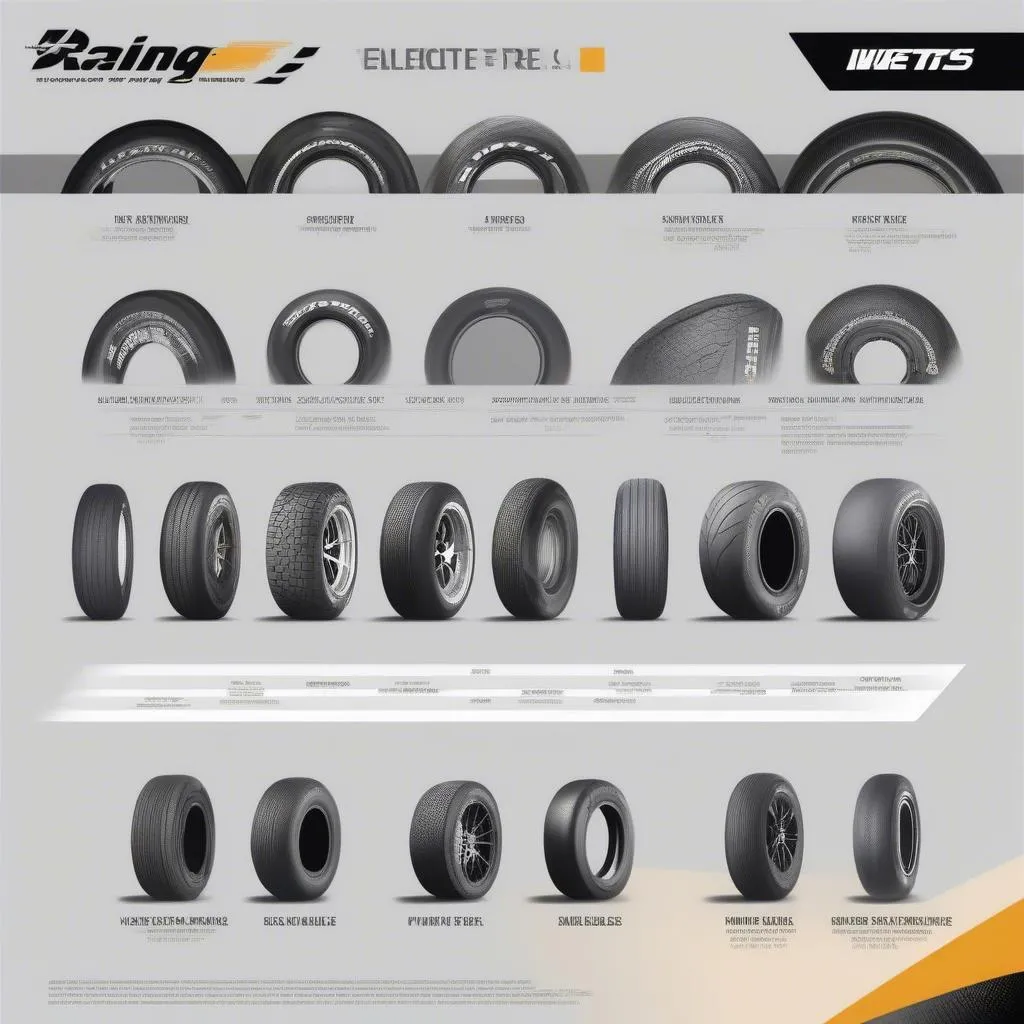Picture this: you’re behind the wheel of a Porsche 911 GT3, roaring down the final stretch of Laguna Seca. The sun is blazing, your heart is pounding, and victory is within reach. But as you enter the legendary Corkscrew turn, your tires start to squeal, fighting for grip.
That, my friends, is the moment when the right set of racing tires can mean the difference between a podium finish and a disappointing spin-out.
Understanding the Need for Speed (and Grip)
For everyday drivers, tires are all about safety, comfort, and longevity. But in the world of motorsports, racing tires are the ultimate performance enhancer. They’re the critical point of contact between your car and the track, translating your car’s power into breathtaking speed and precision handling.
“Think of it this way,” explains Mark Johnson, a veteran racing mechanic and author of “Tuning for Triumph,” “racing tires are like custom-tailored suits for your car’s performance. They need to fit the car, the track, and the driver’s style perfectly.”
From Street to Circuit: Why Racing Tires Are Different
Unlike your standard all-season tires, racing tires are engineered for extreme conditions. They’re built with softer rubber compounds that provide superior grip, allowing for higher cornering speeds and faster acceleration. However, this softer rubber comes at the cost of durability, meaning racing tires wear out much faster than their street-legal counterparts.
Choosing the Right Racing Tires: A World of Options
Navigating the world of racing tires can feel like learning a new language. There are slicks for dry conditions, wets for rain, and intermediates for everything in between. Each tire compound offers different levels of grip, wear rate, and operating temperature.
Key Factors to Consider:
- Car: The make and model of your car, its weight, and its horsepower all play a role in determining the right tire size and compound.
- Track: Track surface, layout, and ambient temperature all influence tire choice. A fast, flowing circuit like Monza will require different tires than a tight, technical track like Monaco.
- Driving Style: Aggressive drivers who brake late and push the limits will need tires with a higher grip level than more conservative drivers.
Maximizing Performance: Tire Pressure and Temperature
Finding the right set of racing tires is just the first step. Getting the most out of them requires careful attention to tire pressure and temperature.
- Tire Pressure: Proper tire pressure is crucial for optimal grip and handling. Too low, and you risk a puncture or uneven wear. Too high, and you’ll sacrifice contact patch and grip.
- Tire Temperature: Racing tires need to be warmed up to their optimal operating temperature range to provide maximum grip. This is typically achieved through careful driving in the early laps of a race.
Frequently Asked Questions About Racing Tires:
What is the difference between slicks and treaded tires?
Slick tires have no tread pattern, providing maximum contact with the track surface for ultimate grip in dry conditions. Treaded tires, on the other hand, have grooves that channel water away, providing better grip in wet conditions.
How long do racing tires last?
The lifespan of racing tires varies greatly depending on the compound, track conditions, and driving style. Some tires might only last a single race, while others can last for several races.
Can I drive racing tires on the street?
It’s generally not recommended to drive racing tires on the street. They are designed for optimal performance in controlled racing environments and may not provide sufficient grip or safety on public roads.
Looking for More Automotive Insights?
Check out these related articles:
- Large Scale RC Cars 1:5: Explore the world of giant-scale remote-controlled fun.
- Carrera NASCAR Slot Cars: Experience the thrill of stock car racing at home with these detailed slot car sets.
Need Help Choosing the Right Racing Tires?
Contact us via WhatsApp at +84767531508 for expert advice and assistance from our team of automotive specialists. We’re here to help you find the perfect tires to unleash your car’s full potential on the track.
So, whether you’re a seasoned racer or just starting your motorsport journey, remember that choosing the right racing tires is an essential step towards achieving your racing goals.
 tire types
tire types